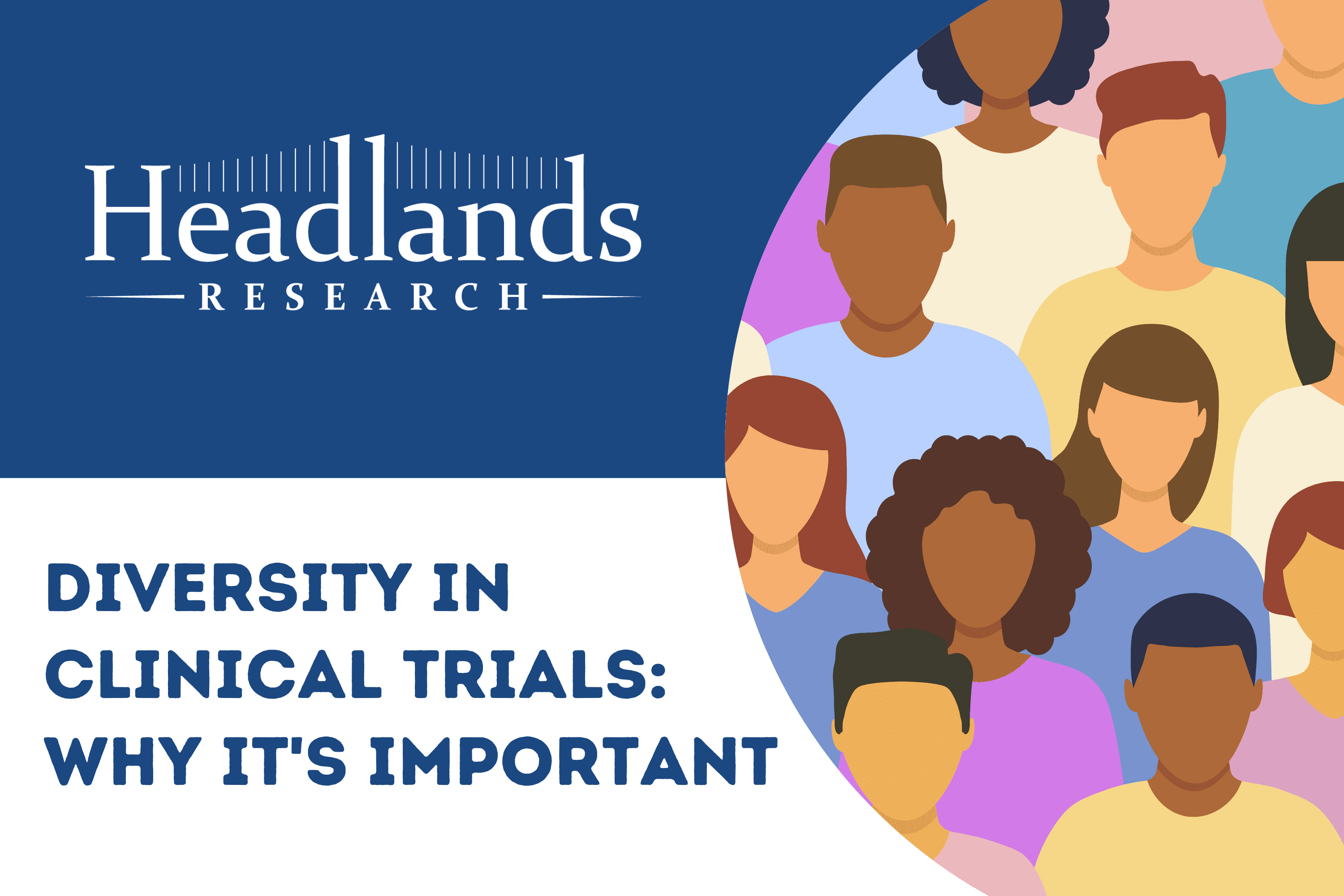Clinical trials are used to advance medical knowledge, create new therapeutic discoveries, and determine if new treatments are safe and effective. It’s important that participants in clinical trials represent their communities and the recipients of new treatments. If clinical trials are not diverse, they may not be able to accurately evaluate how well the treatments will work, often being a disservice to marginalized communities. In a study of over 20,000 trials representing approximately 4.7 million participants, researchers found that only 43% of the trials reported data on race or ethnicity.1
Why is diversity in clinical trials important?
The importance of diversity in clinical trials cannot be understated. For reference, a study conducted on a past phase 2 trial of an Alzheimer’s disease drug included 360 participants in 83 sites and six countries. Even with its large geographic footprint, the study featured 97.5% White patients and only 2.8% Hispanic. Hispanics are one and a half times more likely to be diagnosed with Alzheimer’s than white people.2 The participants in this trial were not reflective of the population this drug would aim to treat. This problem is reported in multiple studies, Black men and women make up 15% of cancer patients but only around 4-6% of cancer trial participants.3 The goal of clinical research is to enable the approval of high-quality therapeutics that will benefit all patients in need, so the inclusion of populations that are traditionally underserved in terms of ethnicity and geography is very important.
What are some of the challenges of increasing the diversity of clinical trials?
Research studies, such as the Tuskegee Syphilis Study, caused unnecessary harm and deception among minorities. Despite the creation of Institutional Review Boards, minorities are more likely to be skeptical of scientific research than non-Hispanic Whites.1 That is why rebuilding trust in communities is an area Headlands Research intends to focus on by building relationships within the communities it serves.
What can be done to increase diversity in clinical trials?
Headlands Research aims to tackle systemic barriers that communities of color face when trying to access clinical trials by using its network to build sustainable, local clinical trial infrastructure with efforts that address the lack of outreach, patient mistrust, and lack of available sites. The work has already begun with a groundbreaking partnership with a leading pharmaceutical company that will further advance Headlands Research’s mission to improve diversity in clinical trials by launching new research sites in areas with highly diverse populations4.
In the past, prioritizing diverse clinical trial enrollment and retention has been met with minimal accountability in the field of research, Headlands Research intends to change the landscape of the clinical trial process and offer a much-needed plan to eliminate health disparities and inequities in underrepresented groups
About Headlands Research
Headlands Research is a leading international network of clinical trial sites, a company that was established with the aim to significantly increase clinical trial participation, provide faster study start-up, improve patient retention, and exceed industry standards with high-quality data. Its network of exceptional sites across the United States and Canada gives the company a substantial footprint in the clinical research landscape and allows it to profoundly impact the trials process by focusing on diversity, quality, and cutting-edge technology.
Partnership initiative information
The partnership’s first site is located at Headlands Research’s facility in Brownsville, the largest city in the Rio Grande Valley which spans the southernmost tip of Texas. The Brownsville site focuses on multi-therapeutic and general medicine studies and has extensive experience in COVID-19 trials. Headlands Research’s partnership is a multi-year commitment to create multiple diversity-focused sites.
References
1. Only 43% of clinical trials report race and ethnicity — What can be done?
Medical News Today, April 2021,
Fierce Biotech, May 2022,
Fierce Biotech, June 2022,
4. Pfizer teams up with Headlands Research to launch trial sites in more diverse areas
Fierce Biotech, May 2022

